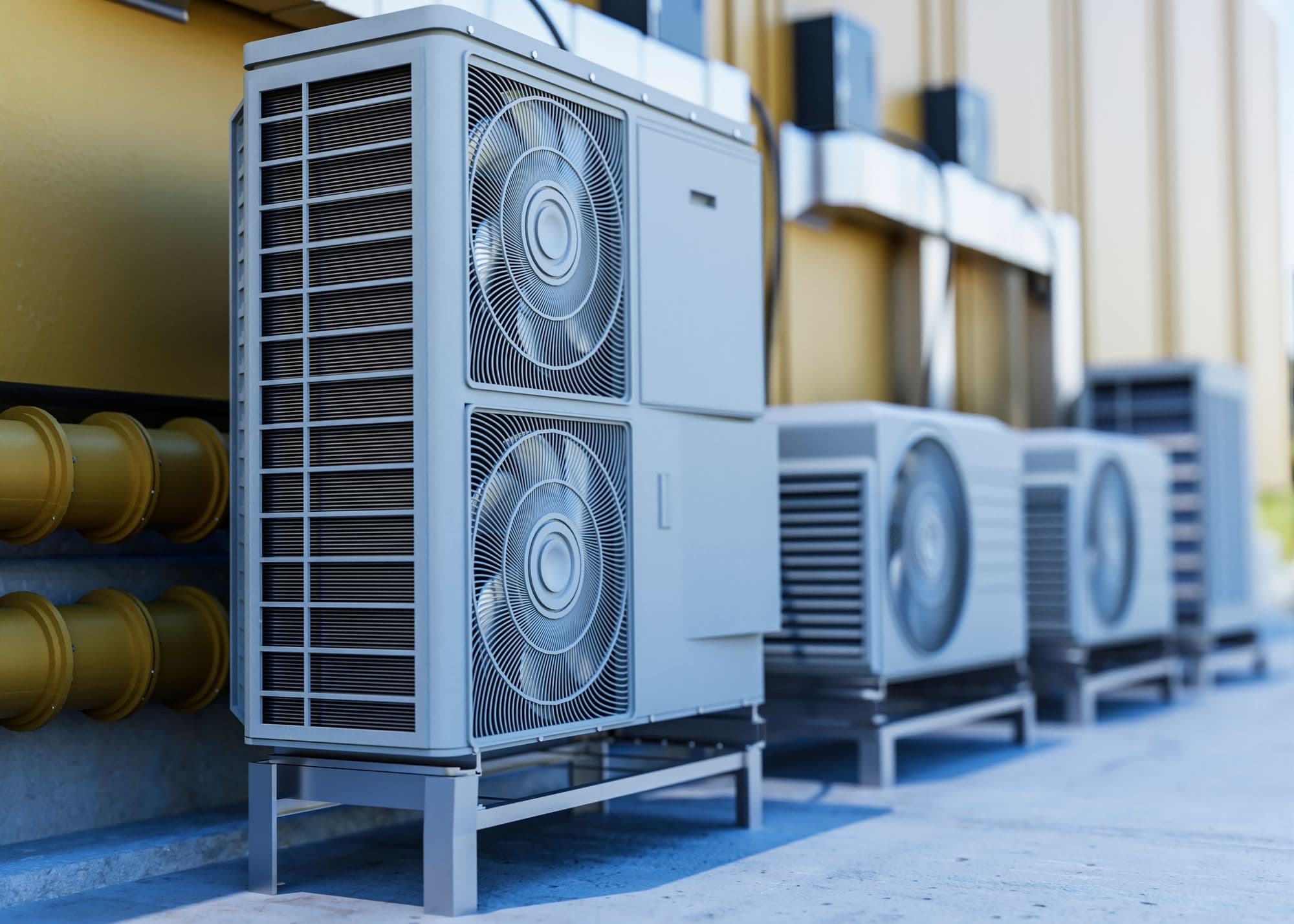Table of Contents
- Introduction
- HVAC Licensing Requirements in Georgia
- Guiding Through Georgia's Licensing Procedures
- Types of HVAC Licenses Available in Georgia
- The Advantages of Becoming a Licensed HVAC Contractor in Georgia
- Georgia HVAC Training Schools and Programs
- Georgia HVAC Licenses vs National Certification
- Conclusion
Key Takeaways
- Georgia has specific licensing requirements for HVAC contractors, including minimum age, education, and experience, as well as a licensing examination.
- The application process for an HVAC license in Georgia is detailed and can involve fees, required documentation, and an expected processing time.
- There are different types of HVAC licenses available in Georgia, each with its own benefits and job opportunities.
- Becoming a licensed HVAC contractor in Georgia can lead to enhanced credibility, job opportunities, and salary potential.
- Several reputable HVAC training schools and programs are available in Georgia.
- While Georgia HVAC licenses are valuable, national certification can further enhance career prospects.
- Launching a successful HVAC contractor career in Georgia is a feasible goal with the right approach and resources.
Introduction
Are you considering a career in the Heating, Ventilation, and Air Conditioning (HVAC) industry in Georgia? If so, you've chosen a field that is not only in high demand but also offers rewarding opportunities. With the Peach State's varying climate, there is a constant need for HVAC professionals to install, repair, and maintain heating and cooling systems that keep homes and businesses comfortable all year round.
However, to make the most of these opportunities, becoming a licensed HVAC contractor is crucial. A license not only demonstrates your competence and commitment to the industry but also gives you credibility in the eyes of employers and clients. It's a significant step in your journey to becoming a successful HVAC professional.
This blog post will provide a comprehensive, step-by-step guide to launching your HVAC contractor career in Georgia. From understanding the licensing requirements and procedure to exploring the different types of HVAC licenses and benefits of becoming a licensed contractor, this guide covers it all. Let's embark on this exciting journey to your new career!

HVAC Licensing Requirements in Georgia
If you're aspiring to be an HVAC professional in Georgia, it's essential to understand the licensing requirements set by the Georgia Board of Construction Industry Licensing Board. These regulations ensure that all HVAC contractors have the necessary skills and knowledge to provide safe and reliable services.
Firstly, let's go over the basic requirements. To apply for an HVAC license in Georgia, you must be at least 18 years old and be a U.S. citizen or have legal proof of authorization to work in the U.S. You must also not have any criminal convictions that directly relate to the profession.
Next, onto the special requirements. One of the key criteria is education. Applicants must have a minimum of a high school diploma or a GED equivalent. However, further education such as an associate degree or completion of a vocational training program in HVAC can be advantageous and is highly recommended.
Experience is another important requirement. Applicants must have a minimum of four years of active experience in the HVAC industry under the supervision of a licensed contractor. This experience must be within the last five years and should cover a broad range of HVAC services including installation, maintenance, and repair of heating, ventilation, and air conditioning systems.
Lastly, the licensing process requires passing a comprehensive examination. This test aims to evaluate your understanding of HVAC practices, building codes, safety measures, and Georgia's laws and regulations concerning the HVAC industry. The test is split into two sections: a business and law exam, and a trade exam specific to HVAC.
The business and law exam focuses on topics such as contract management, business organization, risk management, and Georgia's construction law. The HVAC trade exam, on the other hand, covers areas including HVAC and refrigeration systems, duct systems, controls and control circuitry, and safety.
It's important to note that the examination process is demanding and requires thorough preparation. Applicants are encouraged to use study guides and take advantage of preparatory courses available. The examination fee is separate from the license application fee and must be paid before taking the exam.
In conclusion, the HVAC licensing process in Georgia, while rigorous, is designed to ensure that all HVAC contractors are well-equipped to provide top-notch services. By meeting these requirements and successfully passing the licensing exam, you'll be well on your way to a rewarding HVAC career in Georgia.
Guiding Through Georgia's Licensing Procedures
Navigating the HVAC licensing procedures in Georgia can be a complex process. However, by understanding each step, you can streamline your application and set yourself up for success.
Step 1: Ensure Eligibility - Check that you meet all the basic and special requirements such as age, education, and experience.
Step 2: Prepare for Exam - Start studying for the licensing exam. This includes both the business and law exam and the HVAC trade exam. Utilize study guides, preparatory courses, and other resources to ensure you're thoroughly prepared.
Step 3: Schedule Your Exam - Once you feel prepared, you can schedule your exam through the Georgia Secretary of State's website. The exam fee must be paid at this time.
Step 4: Take and Pass the Exam - On the day of your scheduled exam, arrive early with a valid ID and the necessary materials. Answer each question carefully and to the best of your ability.
Step 5: Apply for Your License - After passing the exam, you can apply for your HVAC license. This involves completing the application form and submitting the required documentation.
The application process also involves various fees, including the exam fee (approximately $240), the initial license fee (around $150), and the application processing fee ($30). The required documentation typically includes proof of identity, proof of education, proof of work experience, and proof of passing the licensing exam.
The processing time for the licensing application can vary, but you can generally expect to receive your license within six to eight weeks of submitting your application.

Tips for Preparing for and Passing the Licensing Exam
- Begin studying early: Make sure you give yourself plenty of time to review all the necessary material.
- Use study guides: These can help you understand what to expect on the exam and can provide practice questions.
- Take preparatory courses: These courses can provide in-depth instruction and can help you identify any areas you need to focus on.
- Practice time management: The exam is timed, so it's important to be able to answer questions efficiently.
- Stay calm and focused: On exam day, make sure you're well-rested and ready to focus. If you've prepared well, you have a good chance of passing.
By following these steps and preparing thoroughly for the licensing exam, you can successfully navigate Georgia's HVAC licensing procedures and launch your career as a licensed HVAC contractor.
Types of HVAC Licenses Available in Georgia
In Georgia, HVAC licenses are categorized into two main types: Class I and Class II. These licenses are designed to cater to different levels of expertise and the complexity of HVAC systems an individual is competent to handle.
Class I, also known as the "Restricted" license, allows you to work on air conditioning systems up to 175,000 BTU per hour and heating systems up to 360,000 BTU per hour. This license is typically suitable for residential HVAC services. As a Class I licensed contractor, you'll primarily be dealing with residential HVAC installations, repairs, and maintenance tasks in single-family homes, townhouses, and small apartment buildings.
Class II, known as the "Unrestricted" license, has no limitations on the size of the systems you can work on. This means you're eligible to handle HVAC services for commercial and industrial systems, which are typically larger and more complex than residential systems. As a Class II licensed contractor, you'll have opportunities to work in a variety of settings such as offices, retail stores, factories, and large residential buildings.
Both types of licenses open up a wide array of job opportunities. With a Class I license, you can start your own residential HVAC business, become a residential HVAC technician, or work as a service manager in a residential HVAC company. On the other hand, a Class II license can lead to roles like commercial HVAC technician, industrial HVAC specialist, or a project manager in a large HVAC firm.
In terms of benefits, both licenses provide a strong foundation for a successful HVAC career. A Class I license may be a good starting point if you're new to the field, whereas a Class II license can open up more advanced opportunities and potentially higher earning potential due to the complex nature of commercial and industrial HVAC systems.
The type of HVAC license you choose to pursue in Georgia should align with your career goals, your interest in working with residential, commercial, or industrial systems, and your readiness to handle the complexities associated with each type of license.
The Advantages of Becoming a Licensed HVAC Contractor in Georgia
Becoming a licensed HVAC contractor in Georgia comes with numerous benefits, opening up a wealth of opportunities in a rapidly growing field.
One of the key advantages of licensure is enhanced credibility. Being licensed demonstrates that you have met stringent state requirements for education, experience, and competency. This not only increases your standing within the HVAC community but also boosts client trust and confidence in your services.
In terms of job opportunities, a license can significantly broaden your career prospects. Whether you're interested in residential, commercial, or industrial HVAC work, being licensed enables you to work independently, start your own business, or pursue roles in larger HVAC companies. With a license, you're not only qualified to handle a wider range of tasks but also more likely to be considered for advanced or managerial roles.
Another key benefit is the potential for increased salary. Licensed HVAC contractors typically earn more than their unlicensed counterparts due to their higher level of expertise and the broader range of services they can offer.
The HVAC job market in Georgia is thriving, with the U.S. Bureau of Labor Statistics projecting a growth rate of 13% for HVAC jobs between 2018 and 2028. This is significantly higher than the average growth rate for other occupations, indicating a strong demand for HVAC services in the state.
To illustrate the benefits of licensure, consider the example of John Doe, a successful HVAC contractor in Atlanta, Georgia. After obtaining his Class II license, John started his own HVAC company, which now services a diverse range of clients from residential homeowners to large commercial businesses. His license has not only enabled him to build a profitable business but also helped him establish a reputation for quality and reliability in the local community.
In conclusion, becoming a licensed HVAC contractor in Georgia offers numerous benefits, from increased credibility and job opportunities to higher earning potential. With the HVAC market in Georgia poised for growth, now is an excellent time to consider pursuing licensure.

Georgia HVAC Training Schools and Programs
Georgia offers a variety of top-notch HVAC training schools and programs, designed to equip students with the essential skills and knowledge required in the HVAC industry.
1. Atlanta Technical College: This college offers both a diploma and an associate degree in Air Conditioning Technology. The diploma takes about five semesters to complete, while the associate degree takes approximately six semesters. The curriculum includes both classroom instruction and hands-on lab work, covering topics like refrigeration, electrical controls, heat pumps, and gas heat. The estimated cost of the program, including tuition and fees, is approximately $6,500 for the diploma and $10,000 for the associate degree.
2. Southern Crescent Technical College: Offering a diploma in Air Conditioning Technology, this program takes about four semesters to complete. The curriculum covers areas like system operation, troubleshooting, and installation techniques for both residential and light commercial HVAC systems. The estimated cost of the program, including tuition and fees, is approximately $6,000.
3. Gwinnett Technical College: Here, you can earn an Air Conditioning Technology diploma in about four semesters. The program focuses on technical knowledge and skills in air conditioning technology systems, with the estimated cost of the program being around $6,500, including tuition and fees.
4. Savannah Technical College: This college offers a diploma in Air Conditioning Technology, taking approximately four semesters to complete. The program provides instruction in air conditioning theory, troubleshooting, and systems design. The estimated cost of the program is about $6,000, including tuition and fees.
When choosing the right program, consider factors such as:
- Accreditation: Make sure the program is accredited by a recognized accrediting body. This ensures the program meets certain standards of quality and that it will be recognized by employers and licensing bodies.
- Curriculum: Look for a program that offers a comprehensive curriculum, covering all the key areas of HVAC technology.
- Hands-On Training: Choose a program that offers ample opportunity for practical, hands-on training. This will help you gain the skills you need to succeed in the field.
- Cost: Consider the cost of the program and what is included in the fee. Some programs may include the cost of books, tools, or even certification exams.
- Location: If you're planning to work in a specific area after graduation, choosing a local program can be beneficial. This can help you build connections in the local HVAC industry.
Through careful consideration and research, you can find an HVAC training program in Georgia that meets your needs and sets you up for a successful career in the HVAC industry.
Georgia HVAC Licenses vs National Certification
Both state licensure and national certification are valuable credentials in the HVAC industry, but they serve different purposes and come with their own set of advantages and disadvantages.
State licensure, such as the Class I and Class II licenses in Georgia, is mandatory for HVAC professionals working in the state. A state license demonstrates that you've met specific educational and experience requirements and passed a state exam. It's a validation of your competence to provide HVAC services in accordance with Georgia's regulations and standards. However, the downside is that state licenses are typically not transferrable to other states.
On the other hand, national certification is voluntary but highly recommended. It provides a broader recognition of your skills and knowledge, as it's not limited to a specific state. The process for obtaining national certification typically involves passing a comprehensive exam, such as those offered by North American Technician Excellence (NATE) or HVAC Excellence. These exams cover a wide range of HVAC topics, from basic principles to complex system analysis and design.
While national certification can enhance your credibility and employability, it's worth noting that it doesn't replace state licensure. In most states, including Georgia, you're still required to hold a state license to legally perform HVAC work.
Having both state licensure and national certification can significantly enhance your career prospects. A state license allows you to legally operate in Georgia, while a national certification can increase your marketability, potentially leading to better job opportunities and higher pay. In addition, a national certification can also demonstrate your commitment to continuous learning and staying updated with the latest HVAC technologies and practices.
While state licensure is a must-have for HVAC professionals in Georgia, obtaining a national certification can provide an added advantage. By holding both, you can ensure maximum career opportunities in the HVAC industry, both within Georgia and beyond.
In conclusion, launching a successful HVAC career in Georgia involves obtaining the necessary education through a reputable training program, securing state licensure, and possibly pursuing national certification for added credibility and job prospects. The HVAC industry in Georgia offers excellent opportunities, thanks to a thriving job market.
Aspiring HVAC contractors are encouraged to take the first step towards their new career. Remember, becoming an HVAC contractor not only offers a stable career but also provides the opportunity to make a significant impact on the comfort and energy efficiency of homes and businesses across the state. Embrace the journey and look forward to a rewarding career ahead.


